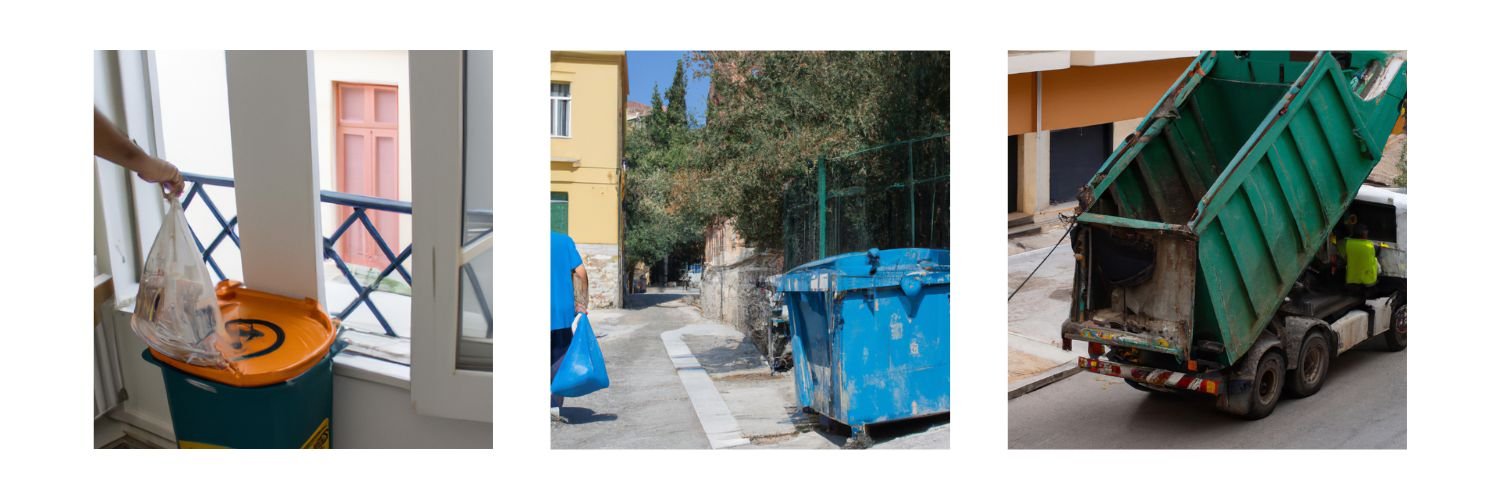What Every Erasmus Student Needs to Know About Staying Safe in Athens (and Why Most Get It Wrong)
/Stepping into the unknown is never easy ...
And while moving to a new city for your Erasmus experience is exciting...
It can also be a little scary.
One of the biggest concerns for Erasmus students like you is safety- whether it’s about the neighborhood, your new apartment... or just navigating the city streets.
In this post, we’ll share practical safety tips to help you settle into Athens.
Read on to discover how you can reduce stress and feel secure while enjoying every moment of your time abroad.
1. Research the Neighborhood Before You Move
Your first step to ensuring a safe living situation is researching neighborhoods.
Athens has a mix of areas, some more secure than others. You want to find a neighborhood that suits your lifestyle, offers access to your university, and ensures you feel safe walking around, even at night.
Example:
Imagine you’ve shortlisted a few apartments in Athens.
Before making your final choice, spend some time looking into each neighborhood. You can do this by checking online forums where Erasmus students share their experiences or using tools like Google Maps to see what’s nearby.
You’ll want to look for areas with good lighting, easy access to public transport, and a general sense of community.
For instance, neighborhoods like Koukaki and Pagrati are popular for students because they offer a vibrant atmosphere and proximity to major landmarks, but they are also considered safe.
Once you’ve got a sense of which areas feel right for you, make sure your accommodation is within walking distance to essentials like grocery stores and pharmacies.
This proximity reduces the need to venture far for basic needs, adding an extra layer of safety.
2. Choose Verified Accommodation
One of the best ways to feel safe in your new city is to choose accommodations that have been verified and reviewed by other students.
While booking a cheaper, less formal option might be tempting, verified student housing ensures you’re in a secure building with trustworthy landlords or housing agencies.
Example:
Rooms Athens, for example, provides fully furnished, move-in-ready apartments that have been vetted specifically for students.
These apartments meet strict safety standards and are located in student-friendly neighborhoods.
Plus, they come with no hidden fees and official lease agreements that give you peace of mind.
This is especially useful if you must present documentation for your visa or residence permit.
By choosing a verified apartment, you eliminate the risk of encountering unsafe or unreliable landlords.
The peace of mind this provides can significantly reduce the stress of living in a new city.
3. Familiarize Yourself with Emergency Numbers and Procedures
Once you’re in Athens, one of the first things you should do is familiarize yourself with local emergency procedures and contact information.
Greece has a central emergency number (112), similar to 911 in the United States or 999 in the UK.
Knowing this and other local emergency numbers will help you feel more prepared if anything unexpected happens.
Example:
Keep a list of emergency numbers handy.
This should include the police, fire department, local hospitals, and your country’s embassy or consulate.
If you’re living in a shared apartment, Rooms Athens offers 24/7 support through their app, meaning help is always a click away.
In case of any house-related emergencies, you can get immediate assistance.
Practice calling 112 and save all important numbers on your phone.
You can also ask locals or neighbors for any additional tips specific to your area.
4. Be Street-Smart and Stay Aware of Your Surroundings
One of the easiest ways to stay safe in any new city is to be mindful of your surroundings.
This means avoiding walking alone late at night, sticking to well-lit streets, and always being aware of the people around you.
Athens is generally a safe city, but like any metropolitan area, it’s important to use common sense when out and about.
Example:
Let’s say you’re heading home after a late dinner with friends.
Instead of taking a shortcut through a quiet alley, stick to well-lit main roads, even if it takes a little longer.
When using public transport, keep your belongings secure and avoid using your phone in crowded places where pickpocketing might be a risk.
Another tip: if you’re using public transportation at night, sit closer to the driver or in well-populated carriages on trains and buses.
Trust your instincts—if something feels off, don’t hesitate to leave the situation or ask for help.
5. Secure Your Personal Belongings
Safety doesn’t stop at the streets—your home should feel like a sanctuary.
Make sure to lock your doors and windows when you leave the apartment and don’t leave valuables in obvious places.
Even in the safest neighborhoods, it’s always a good idea to secure your personal items.
Example:
Let’s imagine you’ve just moved into your new co-living apartment.
Rooms Athens properties are equipped with secure locks, but it’s still smart to take extra precautions.
Consider using a personal safe for important documents like your passport, visa papers, and extra cash.
If you’re living with other students, have an open conversation about house rules, like locking doors when leaving or ensuring windows are closed at night.
Setting these boundaries early helps create a sense of security for everyone living in the apartment.
6. Get to Know Your Neighbors
One of the easiest ways to feel safer in your new city is to get to know the people around you.
Whether it’s fellow Erasmus students or local residents, building a sense of community can give you extra security.
When you know your neighbors, they’re more likely to look out for you, and you’ll feel more confident asking for help when needed.
Example:
Let’s say you’ve just moved into a shared apartment.
Introduce yourself to your flatmates and other people living in the building.
This not only helps with socializing but also creates a support system in case of emergencies.
You might find that your flatmates have been in Athens longer and can give you safety tips or show you the best routes for walking around at night.
Some might even become close friends, easing the fear of being in an unfamiliar place.
7. Use Technology to Stay Safe
There are many apps and services that can help you feel safer in a new city.
Technology can be a powerful tool for ensuring your security, from GPS tracking to ride-sharing apps.
Consider using apps that allow your friends and family to track your location or those that provide emergency services with a single tap.
Example:
Apps like Google Maps and CityMapper can help you find the safest routes to your destination, while Uber and FreeNow provide reliable transport options late at night.
Additionally, Rooms Athens offers a convenient app for its residents, where you can contact support 24/7, report maintenance issues, and stay connected with other tenants.
Utilizing these tools gives you immediate access to help and information, reducing the fear of navigating a new city.
Conclusion
Moving to Athens as an Erasmus student is a thrilling adventure, but safety is always a top priority.
By researching your neighborhood, choosing verified housing, staying aware of your surroundings, and building a support network, you’ll feel more secure and confident in your new home.
At Rooms Athens, we prioritize your safety and comfort with move-in-ready, fully-furnished apartments tailored to the needs of Erasmus students.
If you found these tips helpful and are looking for reliable, safe housing in Athens, check out our listings today!
We’re here to make your Erasmus experience unforgettable, starting with a place you can call home.


























